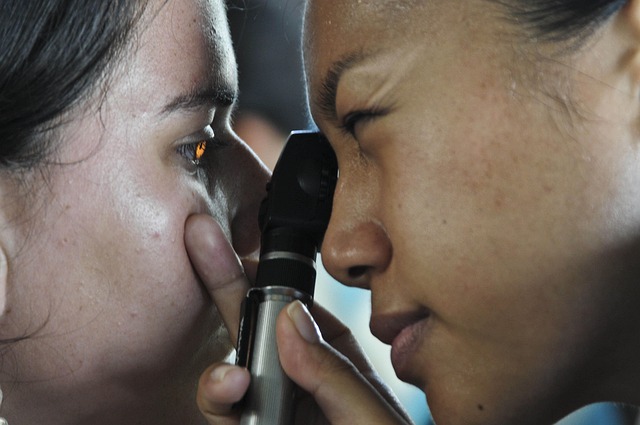First Signs of Brain Cancer You Shouldn’t Overlook in the UK
Brain cancer can begin with subtle symptoms that are often mistaken for less serious issues. In the United Kingdom, early detection plays a vital role in improving outcomes. Recognizing the first signs—like persistent headaches or vision changes—may help identify the disease before it progresses.

What are the most common early symptoms of brain cancer?
Brain cancer can manifest in various ways, depending on the tumor’s location and size. Some of the most common early symptoms include:
-
Persistent headaches: These may be more severe in the morning or worsen with physical activity.
-
Changes in vision: Blurred vision, double vision, or loss of peripheral vision can occur.
-
Unexplained nausea or vomiting: Particularly if it’s accompanied by headaches.
-
Seizures: Especially in individuals with no prior history of epilepsy.
-
Cognitive changes: Difficulty with memory, concentration, or problem-solving.
-
Personality or behavior changes: Sudden mood swings or uncharacteristic aggression.
It’s important to note that these symptoms can also be associated with other, less serious conditions. However, if they persist or worsen, it’s crucial to seek medical attention.
How do brain tumors affect cognitive function and behavior?
Brain tumors can significantly impact cognitive function and behavior, depending on their location within the brain. Some common effects include:
-
Memory problems: Difficulties in forming new memories or recalling existing ones.
-
Language difficulties: Trouble finding words, understanding speech, or expressing thoughts.
-
Impaired judgment: Poor decision-making or lack of insight into one’s condition.
-
Personality changes: Increased irritability, apathy, or inappropriate social behavior.
-
Mood swings: Sudden shifts in emotional state or depression.
-
Difficulty with executive functions: Problems with planning, organizing, or multitasking.
These changes can be gradual or sudden, and they may vary in severity. It’s essential to report any noticeable cognitive or behavioral changes to a healthcare professional promptly.
What physical symptoms might indicate a brain tumor?
Brain tumors can cause a range of physical symptoms, which may include:
-
Balance and coordination problems: Difficulty walking or performing fine motor tasks.
-
Weakness or numbness: Often on one side of the body or in specific limbs.
-
Hearing changes: Ringing in the ears (tinnitus) or gradual hearing loss.
-
Speech difficulties: Slurred speech or trouble finding the right words.
-
Unexplained fatigue: Persistent tiredness that doesn’t improve with rest.
-
Changes in taste or smell: Alterations in sensory perception.
These physical symptoms can significantly impact daily life and should not be ignored. If you experience any of these symptoms, especially if they persist or worsen, consult a healthcare provider.
When should you seek urgent medical evaluation for brain cancer?
While many symptoms of brain cancer develop gradually, some situations require immediate medical attention. Seek urgent care if you experience:
-
Sudden, severe headache accompanied by neurological symptoms.
-
First-time seizure or a seizure that differs from your usual pattern.
-
Sudden onset of confusion or disorientation.
-
Rapid onset of vision problems, such as double vision or loss of vision.
-
Sudden weakness or numbness, especially on one side of the body.
-
Severe, persistent vomiting with no apparent cause.
These symptoms could indicate a medical emergency, such as increased intracranial pressure or a rapidly growing tumor, and require immediate evaluation.
What unique challenges do brain cancer patients face in the UK?
In the United Kingdom, brain cancer patients face several unique challenges:
-
Limited awareness: Despite efforts, public awareness of brain tumor symptoms remains low, potentially delaying diagnosis.
-
Access to specialists: While the NHS provides care, waiting times for specialist appointments can be long in some regions.
-
Treatment disparities: Access to advanced treatments may vary depending on location and local NHS trust resources.
-
Research funding: Brain tumor research receives less funding compared to other cancers, impacting treatment advancements.
-
Support services: While improving, access to comprehensive support services can be inconsistent across different areas.
Despite these challenges, the UK continues to make strides in brain cancer care, with ongoing efforts to improve early detection, treatment options, and support for patients and their families.
How is brain cancer diagnosed and treated in the UK healthcare system?
The diagnosis and treatment of brain cancer in the UK typically follow a structured pathway:
-
Initial assessment: GPs evaluate symptoms and may refer patients to a neurologist.
-
Imaging: MRI or CT scans are used to identify the presence and location of tumors.
-
Biopsy: If a tumor is detected, a biopsy may be performed to determine its type and grade.
-
Multidisciplinary team (MDT) review: Specialists discuss the best treatment approach.
-
Treatment planning: Options may include surgery, radiotherapy, chemotherapy, or a combination.
-
Ongoing care: Regular follow-ups and support services are provided throughout treatment.
The NHS aims to begin treatment within 62 days of urgent referral for suspected cancer. However, waiting times can vary depending on location and individual circumstances. Patients have the right to discuss their options with their healthcare team and seek second opinions if desired.
In conclusion, recognizing the early signs of brain cancer is crucial for timely diagnosis and treatment. While symptoms can be subtle and varied, persistent or worsening neurological changes should prompt medical evaluation. The UK healthcare system offers comprehensive care for brain cancer patients, but awareness and early detection remain key to improving outcomes.
This article is for informational purposes only and should not be considered medical advice. Please consult a qualified healthcare professional for personalized guidance and treatment.




